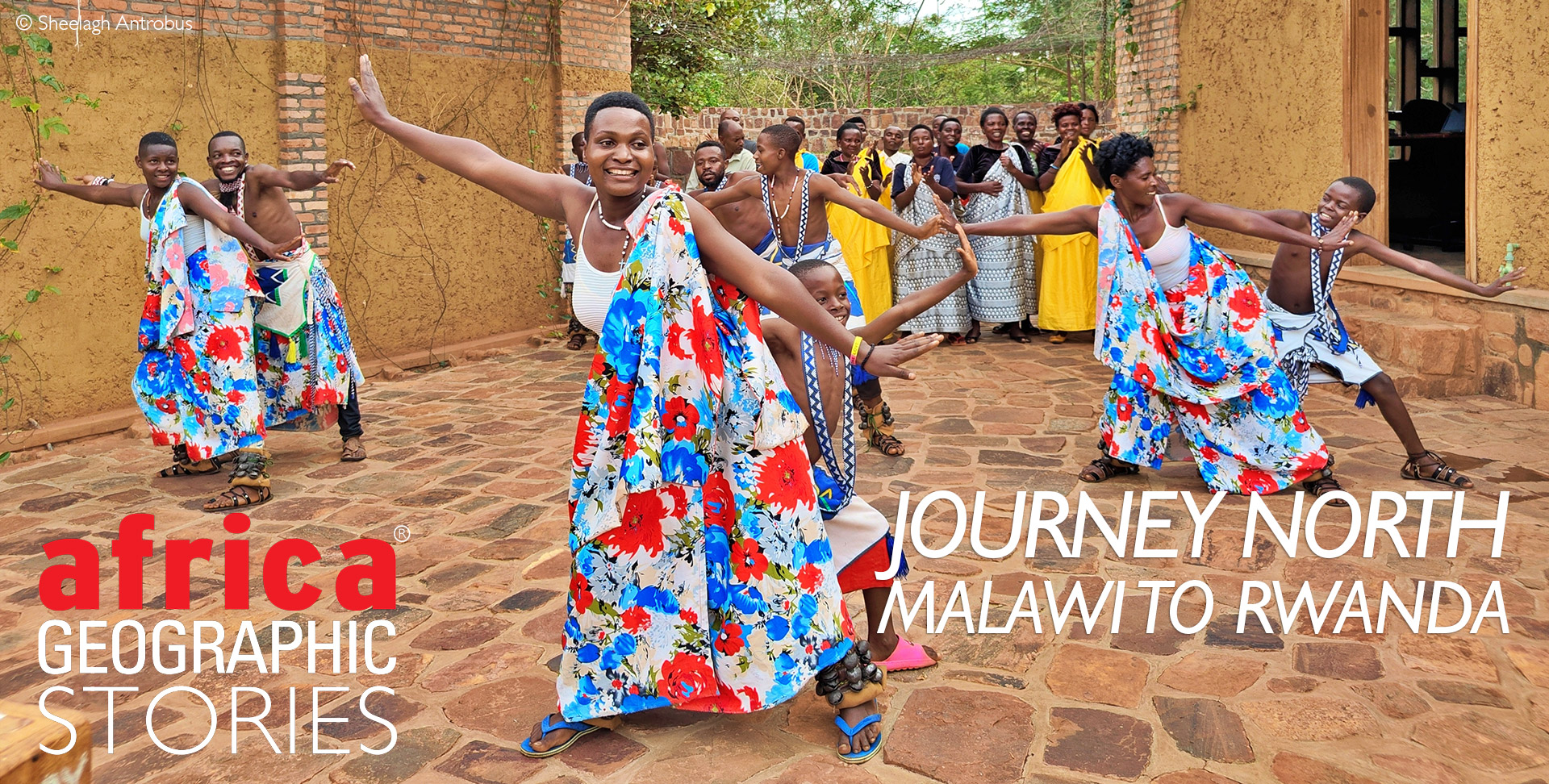
KINGSLEY HOLGATE'S AFRIKA ODYSSEY EXPEDITION


The scratched, mud-splattered map printed on the bonnet of the big Defender 130 tells the story of our quest to link all 22 African Parks-managed areas and the communities they support in 12 countries across the continent. Starting at Iona National Park in Angola and with ten protected areas now completed, spirits are high for the start of chapter two of this legacy adventure. Our next and equally challenging goal is to reach five national parks in Rwanda, DRC and South Sudan.
Renowned African explorer Kingsley Holgate and his expedition team from the Kingsley Holgate Foundation recently set off on the Afrika Odyssey expedition – an 18-month journey through 12 African countries to connect 22 national parks managed by African Parks. The expedition’s journey of purpose is to raise awareness about conservation, highlight the importance of national parks and the work done by African Parks, and provide support to local communities. Follow the journey: see stories and more info from the Afrika Odyssey expedition here.

This is our 41st expedition, and its name, Afrika Odyssey, is particularly significant. It’s a revival of the name given to the first geographic and humanitarian expedition the Holgate family undertook 30 years ago. In 1993-4, Kingsley, Ross and the team back then became the first South African adventurers in decades to travel the length of Africa from the Cape of Good Hope to Alexandria in Egypt along the continent’s rivers and lakes. The expedition’s logo is also a modern redraw of that original journey’s insignia, with twin elephants representing Kingsley’s favourite animal, and our partnership with African Parks and this journey’s mission to discover powerful, positive stories of hope for Africa’s wild spaces and neighbouring communities.
Heading north, the kilometres speed by as the Zen of Travel takes us along roads less travelled. The heavily loaded, long-wheel-base Defenders are made for this type of work as we zigzag along the western wall of Africa’s Great Rift Valley to overnight at one of our favourite spots in Tanzania. Lake Shore Lodge is owned by good friends Chris and Lou Horsefall, who some 20 years ago, built this remote home-from-home paradise with forever views over Lake Tanganyika, Africa’s longest and deepest freshwater lake. It’s a grand reunion and we’d love to stay longer but the race to Rwanda is on.
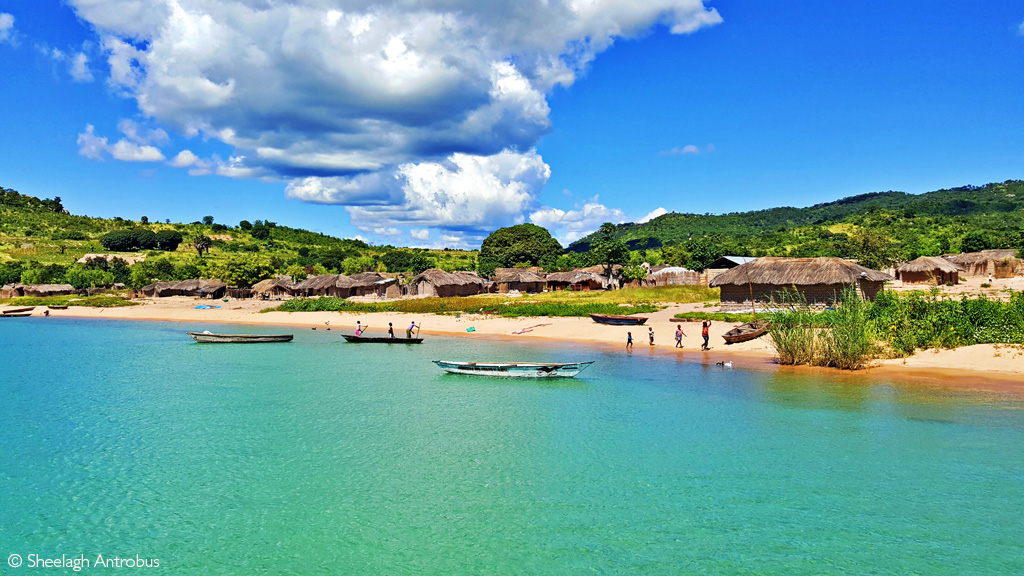
By now, we should know that ‘Mama Afrika owns the time’. Crossing Katavi National Park, with its estivating crocs, congested hippo pools and massive buffalo herds, we’re brought up short by a line of stationery vehicles. On a narrow, upward bend ahead, a 30-tonne container truck is bogged down in thick sand, and a rickety, overloaded lorry carrying timber has got stuck trying to negotiate its way around.
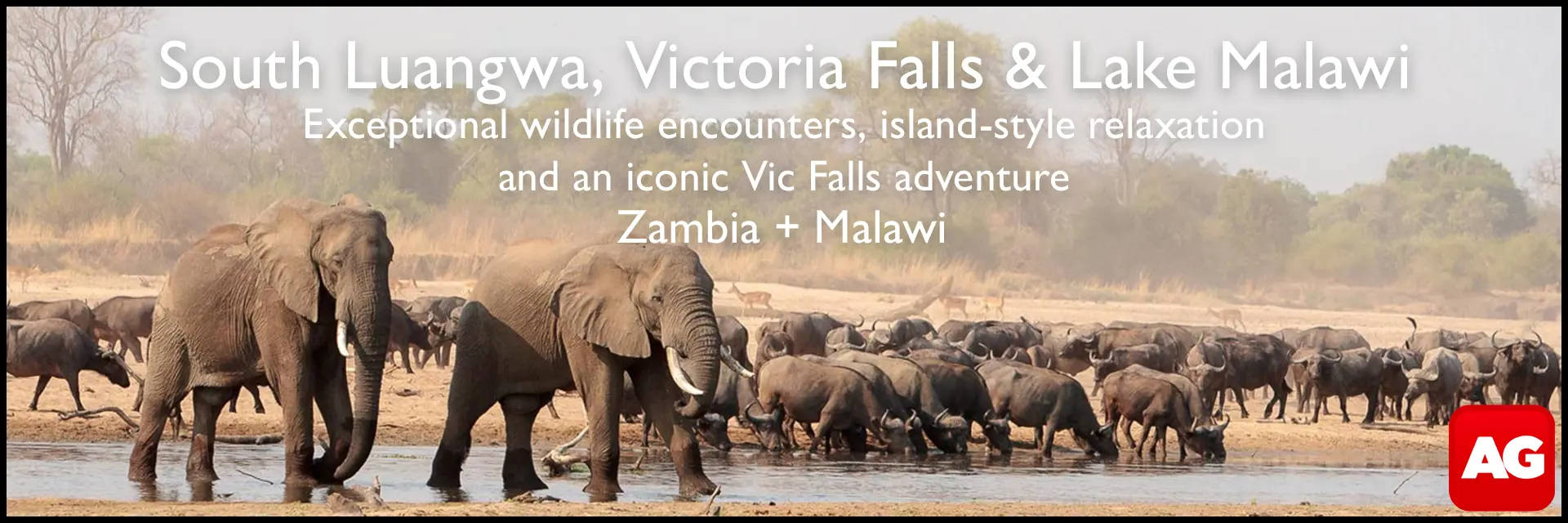
The road is properly blocked – no way through. Kingsley’s son Ross goes scouting for a solution. “Be careful of the lions!” Kingsley shouts after him as, flapping at tsetse flies, Ross disappears into the miombo woodlands. By this time, more trucks and cars had joined the jam on both sides, including a busload of cheerful nuns and quite a crowd gathering, chattering loudly in Swahili. A helpful driver produces a heavy chain and cable and suggests harnessing two strong lorries to pull the container truck backwards and out of the way. But the driver of the stricken truck is nowhere to be found – it seems he’s gone AWOL, along with the keys. We could be stuck here for hours if not days.
Sweating profusely, Ross reappears. “If we can winch the Defenders off the road and over this steep bank, we can gun it up the hill through the trees – there’s a path at the top that will take us around the stuck trucks and back onto the road north.” Wrapping a wide strap around a tree, he attaches the winch cable and with a bit of first-gear, low-ratio and Ross yelling instructions above the groan of the winch, ‘Moyo’ (means ‘heart’ in Swahili), the first Defender inches forward. But the near-vertical, soft bank crumbles, and she starts going over – two wheels off the ground. Shouts of alarm, we race to help – a couple of beefy truck drivers included – and jump onto the running boards to keep the Defender down. A bit more winching, a brief stop to bring in the cable…everyone breathes an audible sigh of relief as foot-flat and with stones and dust flying, Moyo powers up through gaps in the trees to reach the hill’s summit.
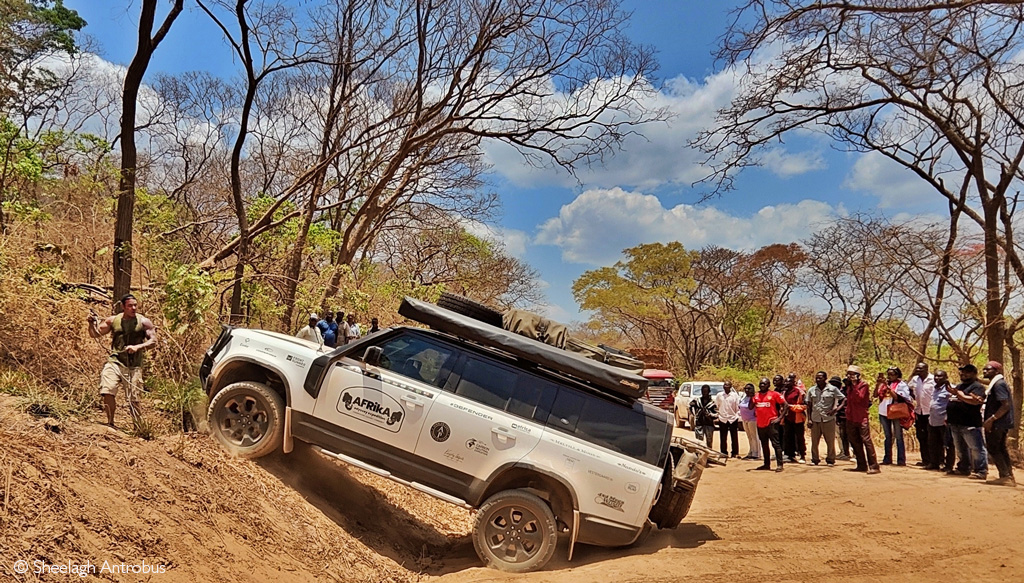
The crowd is even more excited: will the second Defender make it? There’s much shouting and helpful advice as we take a different approach this time. Behind the wheel of ‘Isibindi’ (‘courage’ in Zulu), Kingsley follows Ross’ hand signals, unsure if they are instructions or Ross doing a tsetse fly-swat dance. Bonnet in the air – the angle is crazy – the tree the cable is attached to creaks ominously and starts to lean. In double-quick time, the Beard accelerates over the bank and reaches the top. The truck drivers and nuns clap and whistle to farewell shouts of ‘Safari njema!’ (Swahili for ‘Have a safe journey’), we bump along the rough hilltop path and back onto the dirt road.
Skirting Burundi on the eastern side of the Rift, we take a lonely track along the escarpment, winding through pristine natural forests with endless views. As night fell, we camped in a grassy clearing amongst the trees. It’s spectacularly serene: not another human being in sight, the sky filled with stars, a serenade of frogs and night jars and a pot of chicken stew bubbling on the coals. It’s these ‘freedom moments’ that we love and with enamel mugs in hand, we laugh about the escapades of the day, discuss the route ahead and get to talking about the value of wild camping to an expedition. You’d think they would’ve lost their novelty after literally thousands of nights over many years, but each is still special and a critical part of every journey. We love the simplicity of it all: no cellphone signal, a small circle of light from the campfire, our tents silhouetted by flickering flames, my treasured tin bucket from Macedonia heating ‘small bath’ water, the sounds of an African night permeating the still air, and the world and its problems light years away. Nobody knows where we are; it’s a liberating feeling.
During the night, we’re woken by the crashing thunder and lightning of a massive tropical storm – the first of the season. The rain buckets down in typical East African intensity. Still, by sunrise, the skies are clear, and we’re serenaded by the mournful whooping of ground hornbills in the dripping forest, their melodies echoing off granite-strewn ridges.
400km of muddy roads later, it’s near-dark by the time we set up camp on a windswept, thunderous and lightning-lit ridge overlooking the hills of Rwanda. Memory lane for us – we’d first tried to cross this border in 1994 whilst on the first Afrika Odyssey expedition 30 years ago but were turned back because of the Rwandan Genocide at that time, in which nearly one million ethnic Tutsi and moderate Hutu were killed as the international community and UN peacekeepers stood by. But that’s history now, and this time, Rwanda is a positive story about a beautiful, proud country that’s rebounded from its past and embraced conservation and wildlife as part of its incredible revival.
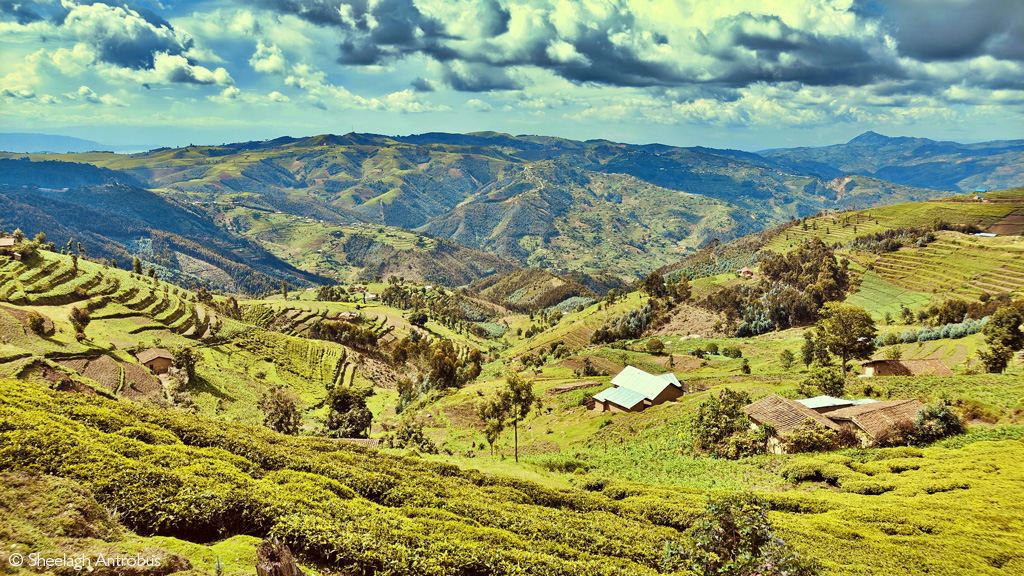
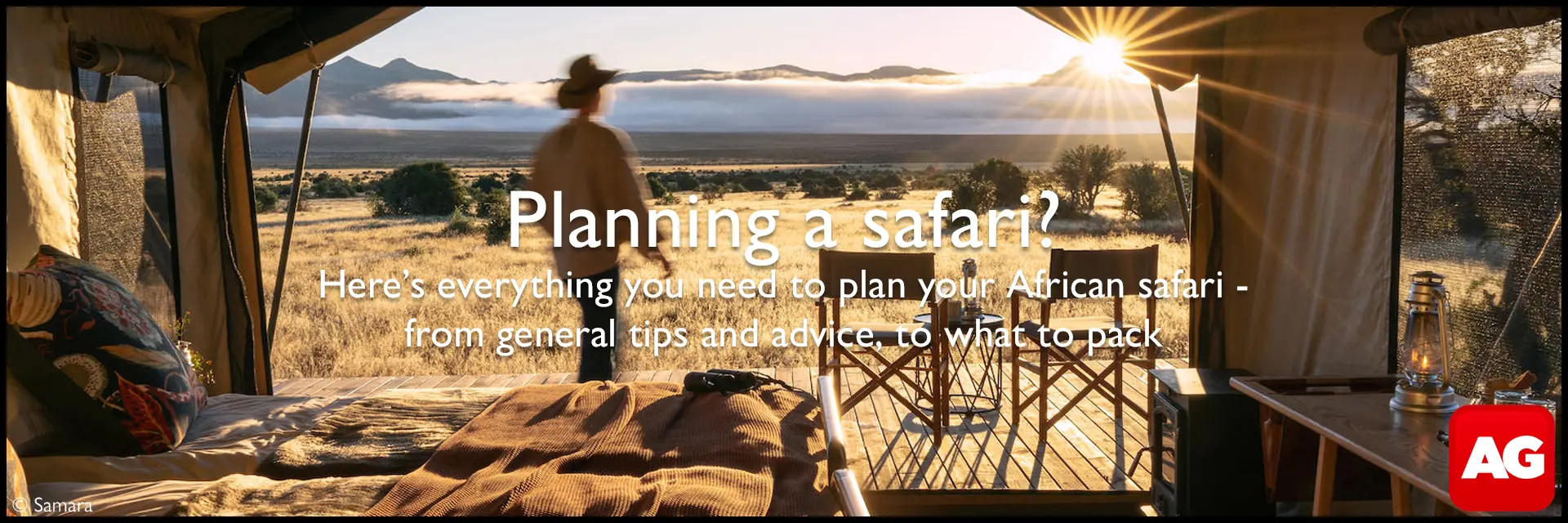
The rain lashes down again as we cross the swollen Akagera River to reach the Rusumo Border Post. Beneath a framed photograph of President Paul Kagame, our passports are entry-stamped with great enthusiasm. “Welcome to Rwanda – it’s your home!” says the smiling immigration official, who also reminds us to drive on the right. The sun comes out to welcome us as we zigzag along tarred roads with not a single pothole, through spotless towns and villages with pretty houses decorated in blue-and-white designs, dodging hundreds of ladened bicycles and motorbike taxis. Every square inch is cultivated: tea and banana plantations, emerald-green rice paddies, lush fields of cabbages, cassava, tomatoes, onions, avos, mangos, coffee, and patchworks of steeply terraced red earth and green fields on every hillside and valley.
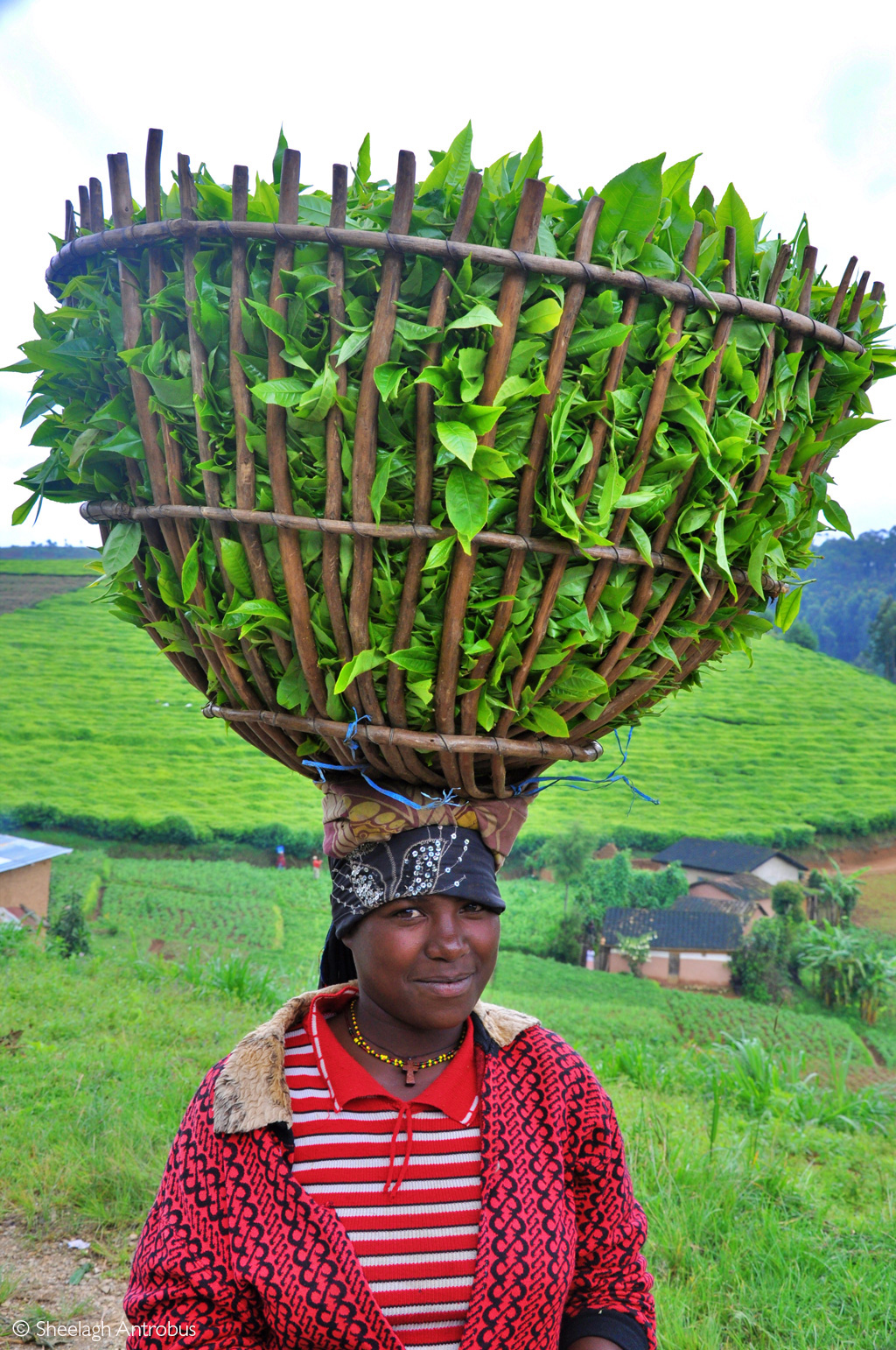
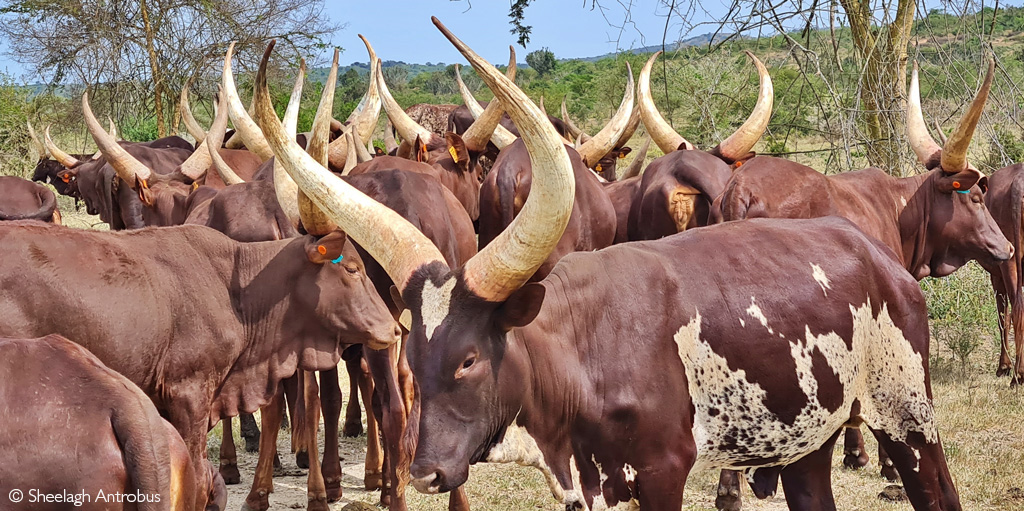
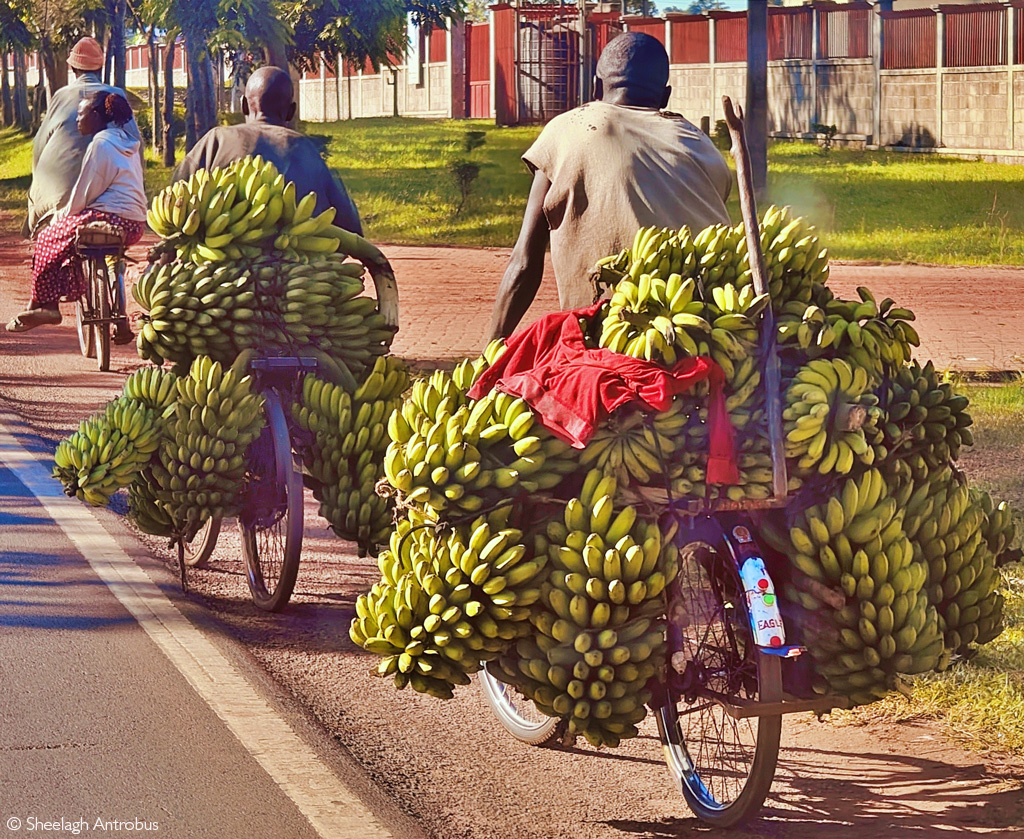
It’s a Sunday, and smartly dressed churchgoers throng the pedestrian walkways and landscaped public parks. We see billboards urging the Rwandese to care for their environment. There’s not a scrap of litter; plastic bags are banned in this small, populous country, and men with spades and women with brooms in yellow reflective jackets are hard at work cleaning the deep drainage ditches on the sides of the road. Driving towards Akagera National Park, we pass genocide memorials with big signs that read: ‘Never Again’.
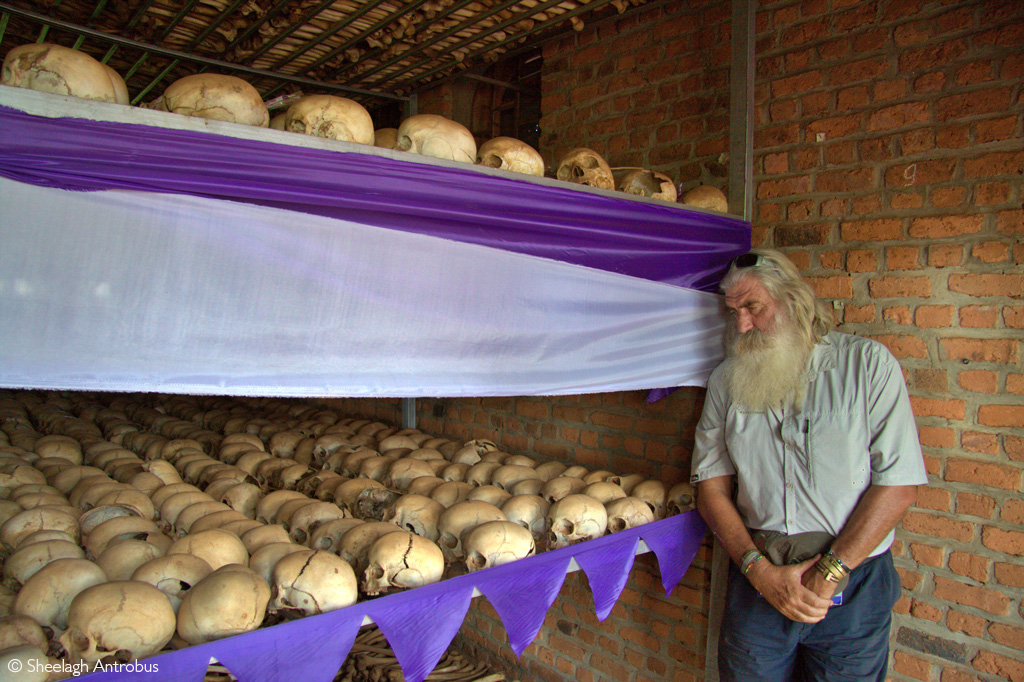
Ladislas Ndahiriwe, Akagera’s park manager, meets us at their community centre, which has busy poultry, vegetable, and craft projects. It is an educational point for school children, teachers and community members, from where over 2,000 kids visit the park annually for free.
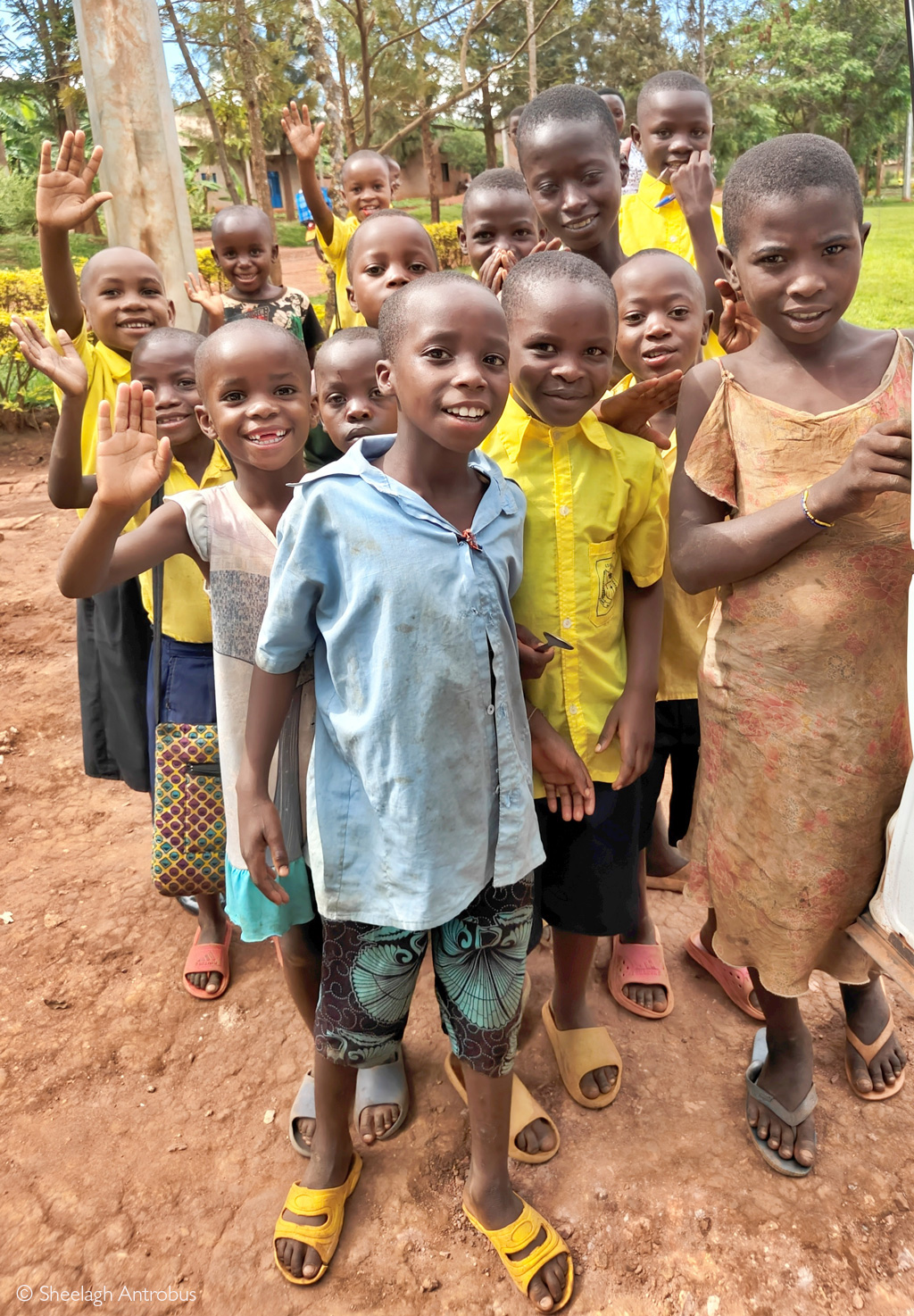
What a welcome! Foot-stomping, drumming, horn blowing, singing and energetic, rhythmic dancing by the Nyange cultural dance group – one of Akagera’s community initiatives. Dressed in vibrant yellow, blue and white traditional cloth, they all sign the expedition’s Scroll for Conservation with hand-scripted, heartfelt messages.
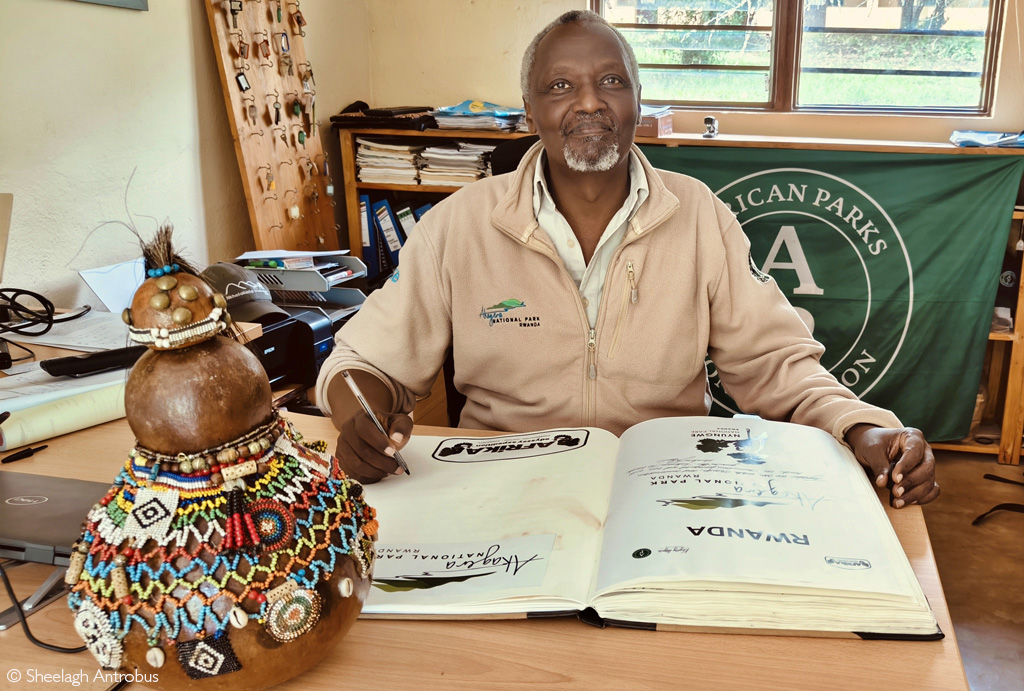
 DID YOU KNOW that African Parks offers safari lodges and campsites where 100% of tourism revenue goes to conservation and local communities? You can plan and book your African Parks safari to Akagera National Park and other parks by clicking here.
DID YOU KNOW that African Parks offers safari lodges and campsites where 100% of tourism revenue goes to conservation and local communities? You can plan and book your African Parks safari to Akagera National Park and other parks by clicking here.
Reaching Akagera National Park, East Africa’s largest protected wetland and a conservation miracle that’s home to Rwanda’s Big 5, is a yardstick for our Afrika Odyssey expedition. It’s park number 11 – the halfway point of this mission to connect all 22 African Parks-managed areas in 12 countries across Africa. From the welcoming smiles and positive energy already evident, we sense we’ll not be disappointed. The journey continues …
Resources
Keen to go on an African safari to Akagera National Park and/or Rwanda? Check out our safaris to Akagera here, and our safaris to Rwanda here.
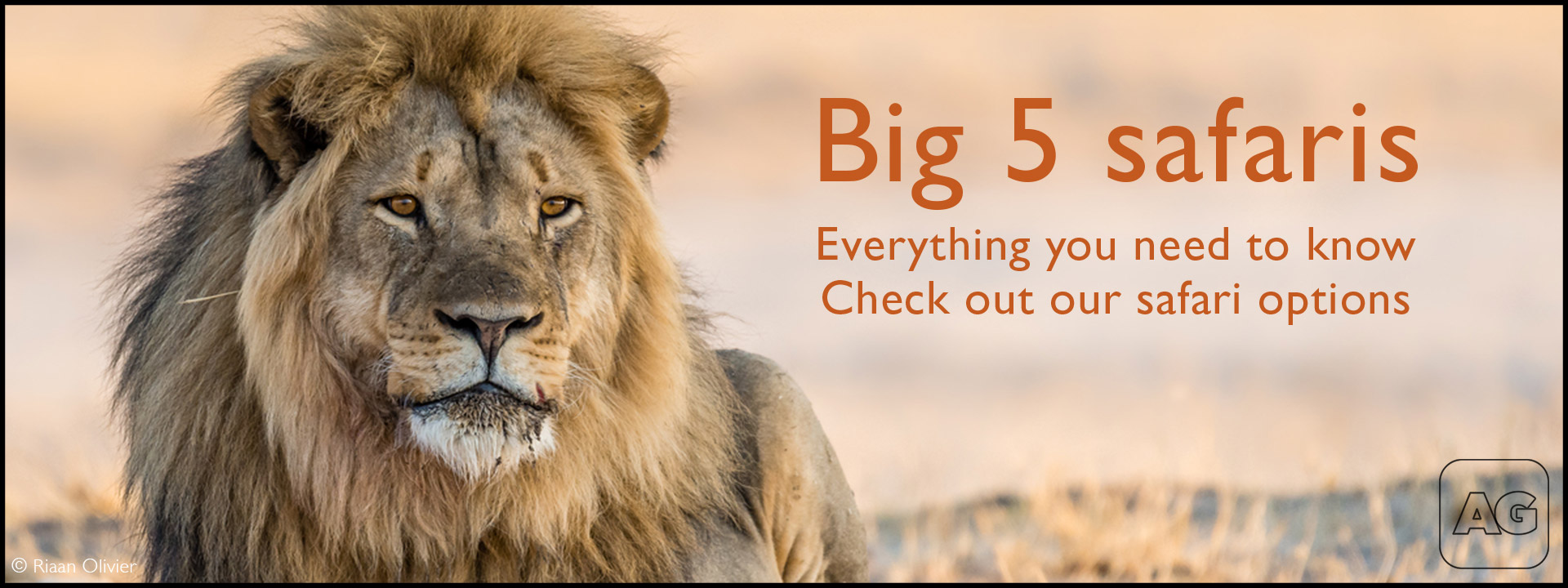
To comment on this story: Login (or sign up) to our app here - it's a troll-free safe place 🙂.![]()




